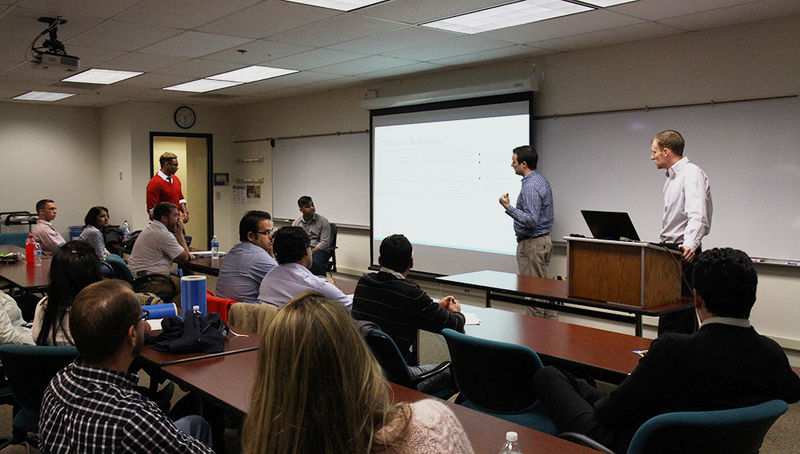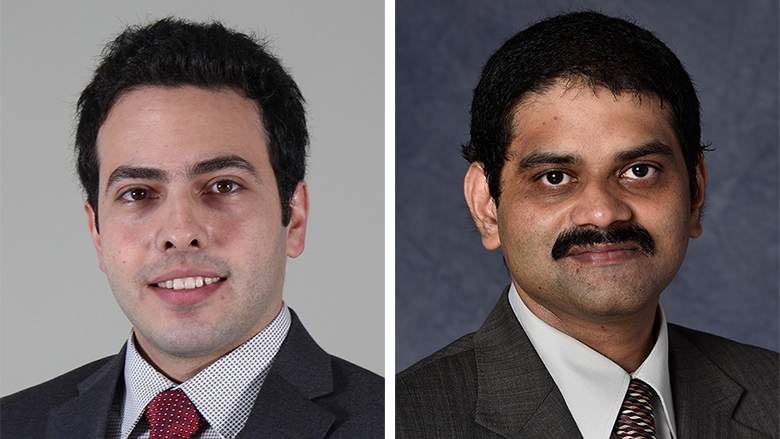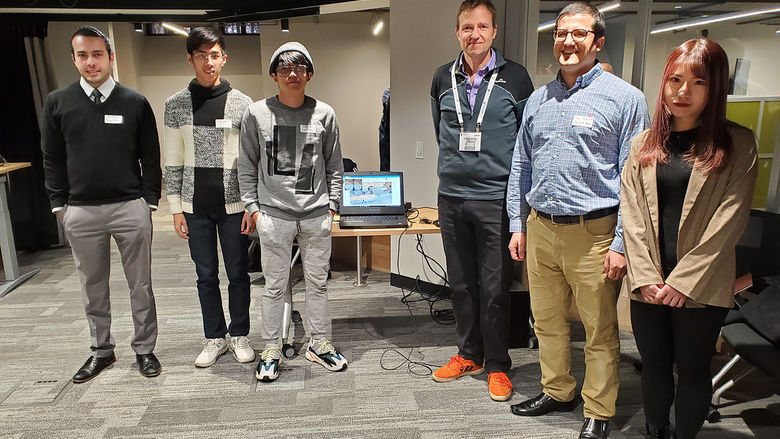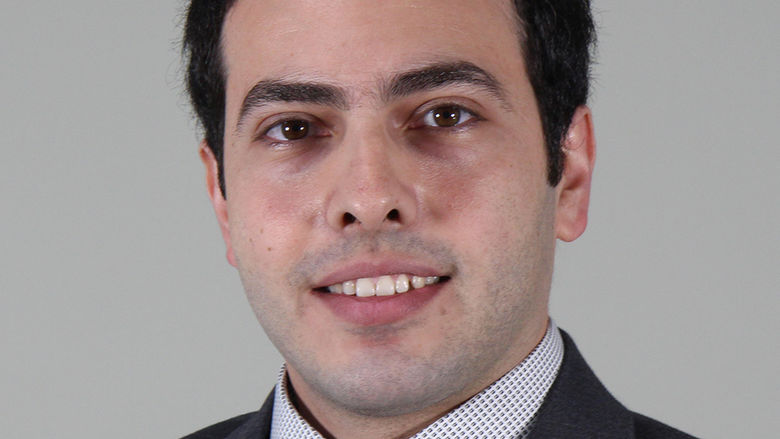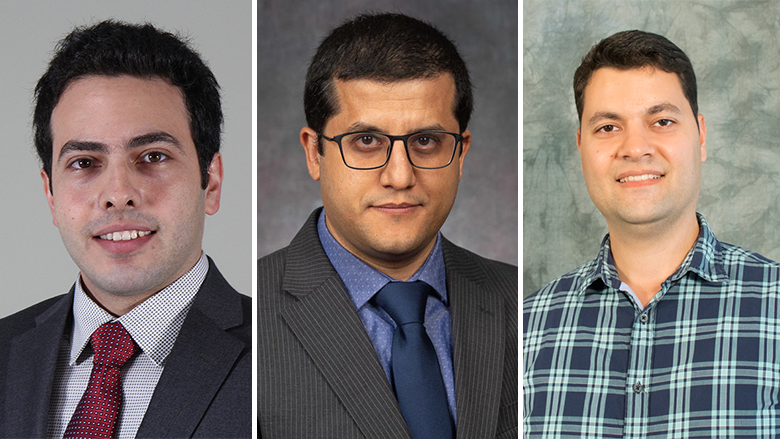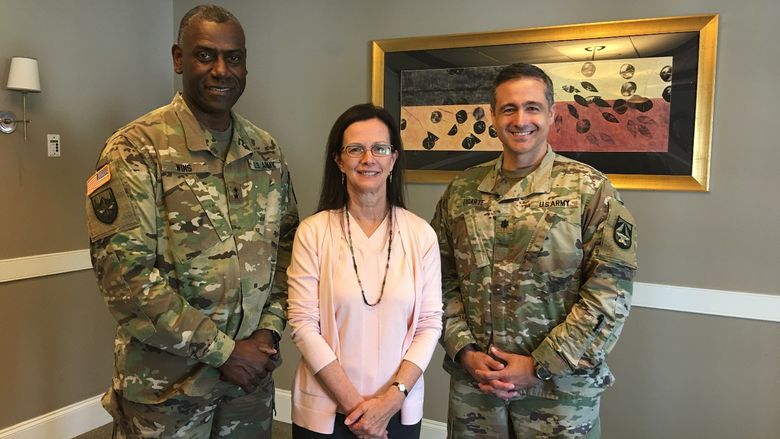MALVERN, Pa. — Master of Engineering Management students at Penn State Great Valley recently collaborated with Chester County organizations this fall as part of a capstone course taught by Assistant Professor of Engineering Management Ashkan Negahban. These partnerships showcased the diversity of area industries — from manufacturing to agriculture to technology to telecommunications — and was beneficial to the organizations and students.
In early fall, Negahban drafted a proposal describing his vision for the course, along with a list of tools students could use for analysis and modeling. With the assistance of Chancellor James Nemes and the campus’ Advisory Board, the piece circulated among a variety of organizations. Negahban heard back from several interested companies, and after meeting with each business, he wrote a description for each project.
Students hit the ground running when the course began in October. In addition to topics developed by Negahban, students had the option to design a project for the company at which they worked. The 18-person class divided into five groups, each focusing on a different company — Aerzen USA, Johnson Matthey, Mother Earth Organic Mushrooms, C.P. Yeatman and Sons, and Comcast.
By the end of the first week many visited their companies to meet with key stakeholders and better understand business functions. Over the next seven weeks, the groups worked to solve a specific problem or improve a current process, or plan for future expansion. Projects included reviewing layout plans for a new factory expansion at Aerzen USA, an analysis of a mushroom packaging and shipping facility at Mother Earth Organic Mushrooms, and creation of an inventory management and ordering optimization tool for Johnson Matthey.
Each team incorporated a variety of tools, including Monte Carlo simulation, discrete event simulation, mathematical models, decision trees, and 3-D printers to evaluate potential solutions. Groups wrote a 20-page report detailing their methodology and analysis, models, and recommendations for their partnered company. On the final day of class, they presented their suggestions to an audience of faculty, staff, and representatives from the five organizations.
The partnership was a win-win for both students and companies. Local organizations received dedicated analysis and expertise from engineers without having to incur any costs; students had the opportunity to apply their skills outside the classroom and gain real-world experience.
Jim Wilson, engineering management student and Continuous Improvement Process Engineer at Johnson Matthey, partnered with a fellow classmate and colleague to focus on a specific problem at their organization’s production facility in Devon.
“One of our main areas of focus is to constantly improve our work flow by being more efficient with our processes and resources,” he said. “This project allowed us to take a hard look at a lot of the assumptions our company makes in regards to production downtime (time when the production lines are not running) and their impacts on how much material we need on site at any one point in time. This got a lot of people at work excited because we had the opportunity to streamline a process over which we had very little control. In turn this saves time, resources, and ultimately money, allowing us to have more flexibility.”
In addition to helping Johnson Matthey, Wilson was able to better understand modeling and other fundamental engineering management ideas that he studied in his coursework.
“The project really helped confirm my understanding of vital tools and methods learned throughout the project, most notably through the simulation software we used,” he added. “The tool helped us make our model more robust and adaptable to real-world situations. In addition, several other concepts from economics, risk, and project management all played a role within our project.”
Meghan Klotzbach, Regulatory Manager at Mother Earth Organic Mushrooms in West Grove, found the capstone partnership rewarding for her organization.
“We were all very excited to work with the students from Penn State Great Valley,” she said. “It was our first experience working with a group of students and we were pleased with how the entire experience went. The students were all very respectful and knowledgeable. Their presentations were comprehensive and their ideas overall feasible for our workplaces. We are looking forward to implementing some of their solutions in the near future.”
As a new faculty member to Penn State Great Valley, this is the first time Negahban taught the engineering management capstone course.
“We had very interesting projects from various sectors, namely manufacturing, agricultural, and service companies all located in Southeastern Pennsylvania, and I am very pleased with the outcomes,” he said. “I am especially impressed by the diversity of the analysis tools that our students used to support their recommendations, ranging from mathematical modeling and optimization approaches to simulation. One of the teams also developed 3D-printed prototypes. The representatives from the companies that attended the final presentations also found the recommendations interesting and useful.
"This is not only a great opportunity for our students to gain real-world experience, but also for companies to improve their operations, which can potentially benefit the entire region’s economy. I am looking forward to working with more companies in the future.”
